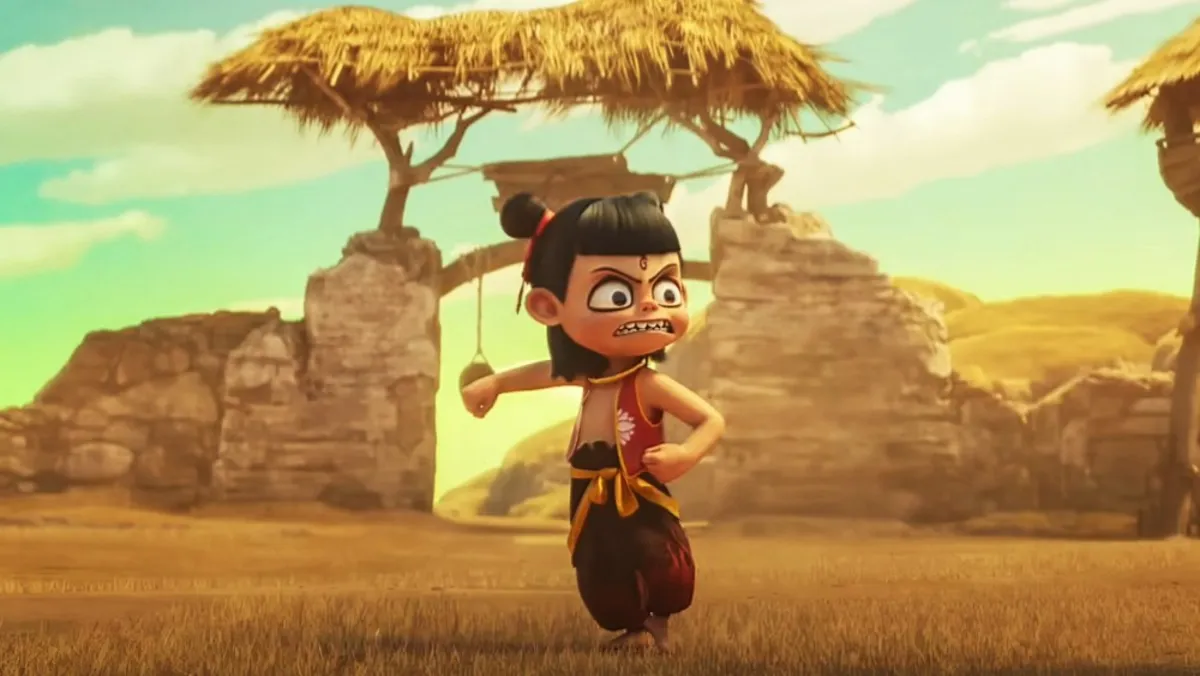
This year’s biggest blockbuster isn’t from Marvel, Pixar, or James Cameron. Surprisingly, most Americans remain unfamiliar with this box office juggernaut, as it's barely playing in the United States. “Ne Zha 2,” a Chinese animated movie, has emerged as an unprecedented smash hit, grossing $1.9 billion across nearly 80,000 screens after just four weeks, with minimal contributions from the world’s largest theatrical market.
“Ne Zha 2” has now become the highest-grossing movie in a single territory, surpassing 2015’s “Star Wars: The Force Awakens,” which earned $936.7 million in North America. Remarkably, “Ne Zha 2” set this record in only 11 days, compared to the 165 days taken by “The Force Awakens.” Moreover, “Ne Zha 2” is now the biggest animated movie in history, surpassing 2024’s “Inside Out 2” ($1.66 billion), and is on track to become the first animated film to cross the $2 billion mark.
These achievements have turned “Ne Zha 2” into a point of pride in China, especially amid political tensions such as the imposition of new tariffs by the Trump administration. “Since ‘Ne Zha 2’ is now competing with Hollywood films for records, it has become a duty to promote and support the film,” says Stanley Rosen, a political science and international relations professor at USC.
With great reviews, a strategic release during the Lunar New Year, and a burgeoning sense of nationalism, ticket sales are projected to reach $2.09 billion by the film's end, according to China’s box office ticketing agency Maoyan. This would position “Ne Zha 2” as the fifth-biggest movie in history, trailing “Titanic” ($2.26 billion) but ahead of “The Force Awakens” ($2.07 billion). Unlike these global titans, “Ne Zha 2” achieved its success largely within China, generating roughly $15 million in North America from 800 theaters.
“Even after the holiday ended, ‘Ne Zha 2’ continued to exhibit remarkable momentum, with only minimal declines on weekdays,” says Lai Li, a market analyst at Maoyan Entertainment. “At its peak, it captured over 70% of the market share.”
“Ne Zha 2,” a fantasy adventure about a dragon-slaying boy, follows 2019’s “Ne Zha,” which earned $726 million globally. The sequel, released during the new year holiday, benefits from audiences having time for multiple theater visits. “These phenomena take on a life of their own, as with ‘Barbenheimer,’ where everyone is talking about it,” Rosen notes.
Moviegoers are drawn to seeing their own stories on-screen. “This is based on Chinese mythology, so there are deep roots in the culture that resonate,” says Adrian Tong, senior analyst at Media Partners Asia. The film blends contemporary themes like social justice that appeal to younger generations.
“Ne Zha 2” executive producers Christopher Chen and Alina Yan Qiu compare the film’s success to Cameron’s “Terminator” franchise. “Even Western audiences would feel shocked to see the level of quality of the animation,” say Chen and Qiu. Imax’s premium screens have contributed $131 million in sales, setting a record as the highest-grossing Imax release ever in China.
A decade ago, Hollywood dominated China’s box office. However, local titles have gained preference, although the Chinese box office has struggled post-pandemic. Revenues fell to $5.9 billion in 2024, a 23% decrease from 2023. “High-quality films will make the box office more sustainable,” Rosen says. The success of “Ne Zha 2” could signify a turning point, highlighting the potential for local films to revitalize the market.